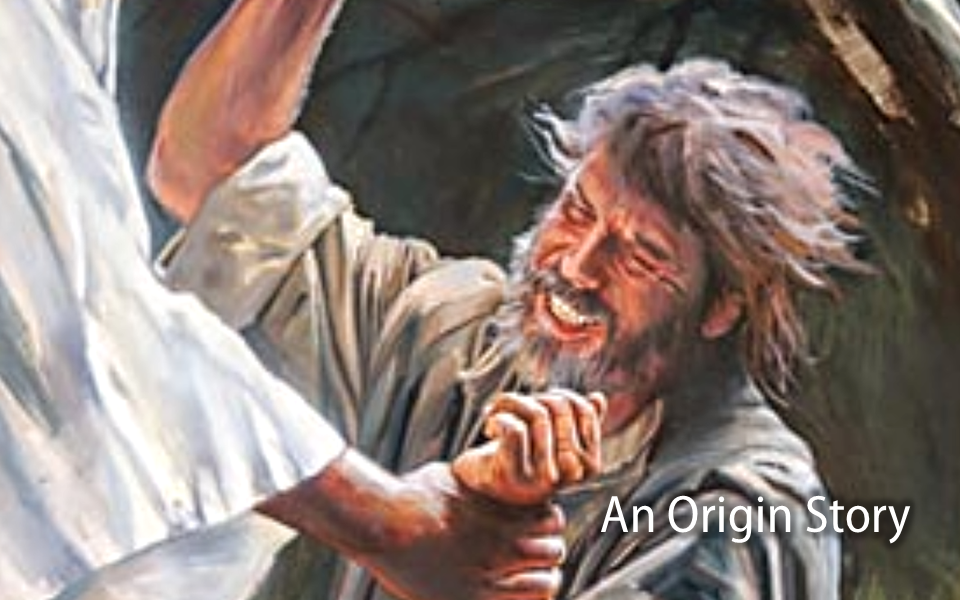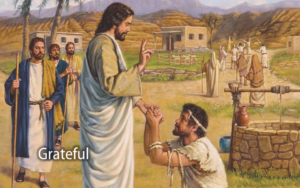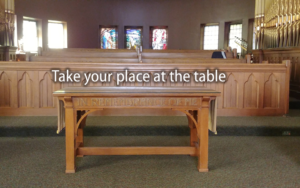Handcrafters’ Market
We have so many creative vendors coming to this market you will be amazed. Please invite your friends, family & neighbours!
The sale will be in the gym and the hall on Saturday, November 16, from 9:00 am - 2:00 pm. Entrance at the back of the church would be easiest, but if you have some mobility issues or a stroller you can enter from the top parking lot and someone will bring you to the sale in the elevator!
Here's a sneak preview of some of the vendors coming!
We will have:
beautiful live edge wood products by Veteran Wood Designs
Fiber craft handmade items for the home & family by Loopeeeee
Sewn items: pet bandanas, up-cylced coffee sacks, eco-friendly items, etc by Sweet Madely Lee
Beautiful watercolour painting, prints & cards by Debbie Ellis Watercolours
Beautiful watercolour items by Elaine Ferdinandi Original Watercolours
Hand crafted fascinators & other hair accessories by Inside My Wicked Wardrobe
Unique vintage, shabby chic, farmhouse style chalk decor by Gently Crafted Chalk Decor
Reusable, eco friendly home items by HBR Kreations
Custom printed & designed giftware by The Grind Co.
Beautiful & fun knit and crocheted items for the family by Karen Kirk
Crocheted, machine washable & dryer safe stuffed animals by Cuddly Critters
crocheted hats, scarves, ear warmers & blankets by Sargent Knits
Jewelry by Jennie: earring, necklaces & bracelets
Bracelets & ear rings made from semi precious stone beads by Simply Made Wonderful
Handmade greeting cards by The Card Shoppe Canada
Pet themed items & signs by A Little Bit Artsy!
Handmade bath & body products free of harsh chemicals by Okika
Natural & household care solutions by Bee Family Products
Handmade wooden signs & Christmas items by Elizabeth Burke
Pallet Art from recylced wooden pallets by Pallet Decor and Design
Beautiful stained glass objects such as Christmas ornaments, jewelry boxes and candle holders by Emerald Glassowrks
Delicious gourmet jams & jellies, baked goods and homemade dips by The Urban Gourmet
Handcrafted custom wooden pens, coffee scoops, key chains, etc using exotic woods from around the world by Wood crafts by Eric
An Origin Story
Hespeler, 20 October, 2019 © Scott McAndless
Genesis 32:22-31, Psalm 121, 2 Timothy 3:14-4:5, Luke 18:1-8
The story we read this morning from the Book of Genesis has got it all: weirdness, strange unexplained details and a midnight wrestling match. But the really amazing thing about this story is that it’s not just a story about what happened to one man a long, long time ago. It’s actually the story of a nation and how it found its identity. It’s the story about how the people of Israel got their name. And their name tells you a whole lot about who they are as a people, and especially how they relate to their God.
You’ve got to pay attention to stories like that. They tell you a whole lot more about the true nature of a people than all of the laws, rules and policies that get written down and are given much more attention. A good story, especially a founding story like this one in Genesis, can sometimes tell you everything.
And, to show you what I mean, I got somebody else to tell you that kind of story about this congregation. Jack Krueger is a long-time member and sustaining elder of St. Andrews Hespeler Presbyterian Church. His current state of health means is unable to join us here, but he is no less a part of this congregation today than he ever was. And if you know Jack, and a lot of people around Hespeler know Jack, you know that he’s a storyteller. Over the years he’s told me many stories about this congregation. Some of them, I wouldn’t repeat here, and he wouldn’t want me to. But some of them have really taught me a lot about this congregation and so the other week I got him to tell one of them for you. I’m going to share his story with you now.

There are a couple of things you need to know to properly understand Jack’s story. First of all, you need to know that when this sanctuary was built over a century ago, it had a particular high church design, especially up here in the chancel area. The choir pews did not face the congregation as they do now, but rather faced each other with rows of pews in front of the organ pipes on each side. And that space, on the far side of the choir, the space that we don’t really use anymore and that you may have wondered why it was even there, that was where the communion table sat. That was how the sanctuary was designed and how it remained until the time when Jack’s story begins.
In addition, you need to know a few of the characters that Jack mentions in his story. When he says Wallace, he is talking about the man that most knew as the Rev. Wally Little, long-time minister of this congregation. The Jack that he refers to is Jack Wehner, who was music director for many years. And when he mentions “the Mill,” he’s talking about a group of people associated with one of the biggest employers in the town – prosperous people who were big financial supporters of the congregation for many years, and who clearly had some strong ideas about what could be changed in the sanctuary and what could most certainly not. Here is Jack’s story:
If you have any trouble playing the video within this post, follow this link to play it on Youtube: https://youtu.be/pMgS2Fn8-5s
The Bible says that the identity of the Israelites was born in a midnight wrestling match. Jacob is about as close as we get to the literal father of the nation of Israel – the actual father of twelve men who will, in their turn, found the twelve tribes that will make up the entire nation. And in this story he gets a new name, the name that the nation will bear: Israel.
And if we all spoke Hebrew, the original language of the text, we would immediately understand the meaning of the name because, in Hebrew, the name sounds like God-wrestler, the one who fights with God. That makes perfect sense in the story, of course, what better nickname could you give to someone who just spent the entire night grappling with a divine being? But this story is not just about who Jacob is, it is also about who his descendants will be. They will be a people who will be defined by their struggle with God and the midnight wrestling match foreshadows many of the ways in which the nation will struggle with their God throughout their history.
For example, one of the reasons why Jacob is fighting with God is in order to know who he is. “Please tell me your name,” Jacob pleads, though God doesn’t answer. This represents the oldest human struggle of all, the struggle to come to terms with who God is. And it is indeed something that we still struggle with today and that we will never fully resolve.
Even more important, Jacob struggles with God for a blessing. “I will not let you go, unless you bless me,” he declares. Jacob is not seeking this blessing merely for himself but for his descendants who are about to meet with Esau, Jacob’s brother, who has vowed to destroy them all. This struggle for a blessing for our descendants is one of the key aspects of the ongoing human struggle with God.
Jacob’s wrestling match with God is an indication that human-divine relationships are not easy. They are a struggle and they sometimes leave deep marks on us, just as Jacob is left with a limp because of his wounded hip. But the blessing that Jacob receives is an indication that the struggle is nevertheless worthwhile. So, you see, these kinds of foundation stories really do tell us a lot about the identity of a people and how they operate.
Which brings me to Jack’s story about this congregation. I think that is a great founding story for us as a people. Even though many here did not live through that story, I believe that it continues to help define who we are as a congregation. And I’m sure you noticed that Jack told it as the story of a fight. To use his own words, he saw himself as wielding a knife and flaying his enemies alive! Now, granted, Jack was a butcher so I guess that’s a kind of imagery that comes to him naturally. He obviously didn’t mean to literally describe a knife fight. But he was definitely talking about a kind of conflict where everyone picked sides and there were clear winners and clear losers. And I see in that a pretty good model for how this congregation tends to deal with change.
The change they were struggling with in Jack’s story, basically the movement of the communion table closer to the people of the church, was an inevitable one. There was a time when the old high church setup really worked for people, maybe conveyed a certain seriousness, but that time was passing when Jack’s story began. Change was needed to keep the church relevant in a changing world. The only issue was how was the church going to deal with that change. And, apparently, they did it by choosing sides and having a knife fight if I understood correctly.
I think that that story is as much a part of our identity as a congregation as the story of Jacob is about the identity of the people of Israel. They were a people who dealt with change by struggling with God, we are a people who struggle with each other. I’m not saying that we constantly fight with each other. We actually get along great and work well together most of the time. It’s just that when we have to process serious change, we tend to do it by fighting it out. We don’t do that because we like it or because we don’t like each other. We just do it because we don’t know any other way to deal with change.
We don’t plan it, different people take different roles and play different parts at different times in the conflict, it just kind of happens. It’s part of who we are. And yes, that way of handling change has brought us some blessings, just like Jacob’s battle brought a blessing. But it has also sometimes left us wounded and limping. So, yes, pay attention to the stories that we tell; they are an essential part of who we are. It may surprise you to learn, however, that that is not the only way that churches can deal with change. There actually are other ways!
Jesus was a storyteller too, as you know. And perhaps one of his stories could help us think a bit more creatively about dealing with change. He told a story about a widow who got into a fight with a judge. She wanted something from him, some justice, and he didn’t want to give it to her so she had to fight him. And the battle between the two might be more violent than it seems when you first read this. The usual interpretation of this story is that the widow just wears the judge down with her persistence and insistence until the judge says, “I will grant her justice, so that she may not wear me out by continually coming.” What you need to know is that the judge’s words can also be translated as “I will grant her justice, so that she doesn’t end up slapping me in the face!” So that widow might have been a bit scrappier than you’ve been led to believe!
Jesus seems to have told this story to illustrate how people related to God in prayer and in other ways and the underlying assumption seems to be that you have to fight with God to get anything from him. It’s just like the Jacob story – Jacob had to fight with God to get a blessing, the widow has to fight with God to get justice. Jesus is saying that that’s how we think it works. But then he goes on to say that God actually isn’t like the judge at all. In other words, we may assume that we need to fight with God to get the blessing but God would rather just give it. Maybe Jacob’s wrestling match and Israel’s ongoing struggle with God is not about who God actually is, but is rather caused by our failure to understand God at all.
Which leads me to wonder, have we in this congregation learned to deal with change by picking sides and fighting it out until somebody wins and somebody loses because we too have failed to understand the true nature of God? The idea that, in order for one person to win, somebody else has to lose, is actually based on a fundamental misunderstanding of the nature of the church and of God. It is a way of behaving that humans have always adopted when resources are scarce. But we do not have a God of scarcity; we have a God of abundance. Change is inevitable as we move forward, my hope and prayer is that we deal with it in the best ways possible. There really is no need for there to be winners and losers. The more we know God, the more we can create a church where everyone is heard, everyone’s respected and we actually all win together.
Grateful
| I |
Take your place at the table
| T |
Dream Auction
Come out for a very fun evening! Dessert, coffee & tea, and viewing of silent auction items will begin at 7:00 pm. The Live Auction will begin at 7:30 pm. This is a family friendly event! Children are invited to come in their pj's, watch a movie and enjoy some popcorn.
Are you able to donate an item to be auctioned off: So far we have: bird feeder/food, electric tooth brush, black forest cake, a dozen eggs from free roam hens, a pick up load to the dump and more. Stay tuned for updates.
All proceeds will be directed to St. Andrew's General Operating Budget.
Choosing Life: Make Foolish Investments (according to this world)
| O |
Gold Sale
The Athalie Read Group of St. Andrew’s Hespeler Presbyterian Church is sponsoring a GOLD SALE! in the Church Foyer, September 26, 2019.
Drop-in anytime 6:00 pm to 8:00 pm
Turn your unwanted Gold and Silver into CA$H CA$H CA$H
Bring your Gold, Sterling Silver or Platinum items, Jewelry, Silver Coins (pre-1968), Watches, Silverware, and redeem for CA$H. Items will be weighed and tested on the spot, no obligation to take the deal.
If you are unable to attend, you may leave a package (baggie) with a member of the group who will be happy to have your items assessed and call you with a price, which you may accept or decline.
You may call a member to pick-up your package to take to the event on your behalf.
If you would like to attend and need a ride, this can be arranged
For more information please contact:
Betty Clarke at 226-647-5244, or Carol Jones at 519-658-4394
Choosing life: Write down what’s right
Hello… 911?
H |
H |




